Description
Broadfork Farm
Poems by Tricia Knoll
Tricia Knoll is a widely published Oregon poet. Each year she farmsits at Broadfork Farm, a small organic farm in Trout Lake, Washington. These poems herald her love of gardening, her compassion for the fur-covered and feather-clad beings that find the farm to be home.
In a bucolic setting next to the rushing Salmon River and below the glaciers of Mt. Adams, her record of life on the farm affirms both the humor and zest of living as well as the realization that the lives of farm animals are also witness to impermanence. At a time of environmental change, Knoll’s poetry weighs the role of the small family-owned farm against the brutal realities of the world beyond the farm. She finds gratitude and stillness in the simple gifts of sun, wind, water, and soil.
This poetry, compiled over seven years, represented for me love songs to a small organic farm in Trout Lake, Washington where I regularly farmsit. I wanted to release the book to poetry-lovers who admire the hard work of single-family organic farming and who have soft feelings for animals that live on farms. My daughter was married on this farm. We had plenty of photos that my husband, Darrell Salk, had taken over the years — so we incorporated some of the photos mixed in with the poetry.
—Tricia Knoll
About the Author
Tricia Knoll is an Oregon poet. To her, the Columbia River Gorge is one of the great wonders of the world. She loves crossing the bridge at Hood River, Oregon and heading north to Trout Lake, to Broadfork Farm. For many years, some of her best friends have been creatures with fur or more than two feet.
Her education focused on literature – degrees from Stanford University (B.A.) and Yale University (M.A.T.) She has taught high school English, edited a newspaper for school-age children, worked as the Public Relations Director at Portland’s Children Museum, and retired as the Public Information Officer at the Portland
Her first day of retirement began with walking a dog and sitting to reread Whitman’s Leaves of Grass. That re-ignited her lifelong love of writing and reading poetry. She maintains a daily haiku writing practice and sometimes calls herself an eco-poet. Her poetry appears widely in national and international journals and anthologies.
Her chapbook Urban Wild (Finishing Line Press, 2014) explores interactions between humans and wildlife in urban habitat. Her book, Ocean’s Laughter (Aldrich Press, 2016) takes its title from a line of Pablo Neruda’s: Do you not also fear the ocean’s laughter? Poetry in Ocean’s Laughter focuses on change over time in Manzanita, a small town on Oregon’s north coast.
Knoll is extremely grateful for the poet-mentors she has studied with and her poet-friends who continue to inspire and encourage her.
What They’re Saying…
At a glance, Broadfork Farm might seem a rustic homage to a simpler sort of life — and it is that — but the poems are rich with energies, convergences with and retreats from our cultural moment. Subtly, the poems ask to engage with the realities of the farm — the violences of barnyard cats and dogs, the slaughter of lambs, the impact of a long drought — and to hold these in comparison and contrast with the banal forces of history: the brutal conquests of Native lands, terror attacks at home and abroad, a hate crime against a Buddhist monk “mistaken” for a Muslim.
Knoll is a skilled poet; “To Tuck in Barnyard Creatures” is one of many poems with a rich sonic texture that is both subtle and celebratory — sometimes it feels as if we’re in the music of the farm, the songs of the roosters, the barking of the dogs, the rhythms of a different life. By the end of the book, we are asked, perhaps, not only to see and hear “life on the farm” but to see and hear our own lives a little differently. To put it more simply, like its namesake, the poetry of Broadfork Farm will “feed a few and teach caring” — and that’s a tremendous accomplishment for a book of poems.
—Tod Marshall,
Washington State Poet Laureate
For Tricia Knoll, writing poems is a way of participating in the everyday of what matters. While Broadfork Farm traces Knoll’s experiences in the daily business and busyness at the eponymous farm, her articulate and carefully observant poems simultaneously present evidence of her deep ecological concerns and her compassionate embrace of our world and its human and nonhuman inhabitants. Open this book anywhere and feel the “rustles and wingbeats” of the wind on the farm, as well as Knoll’s abundant gratitude for “what watches over.”
—Andrea Hollander,
Author of Landscape with Female Figure:
New & Selected Poems, 1982 – 2012
To read Tricia Knoll’s Broadfork Farm is to come to a gate and find that it opens for you. These aren’t poems that stand and talk stiffly at the threshold; these are poems that welcome you into the farm and barn and pastures, poems that walk and work, that see, taste, and listen to this particular loved place. Knoll’s poems inhabit the farm as vividly as the community of humans, spotted pigs, broody chickens, goats, and dogs that live there. They roost and burrow and take root. I find myself not so much reading these poems as sticking my head into each one like a bee in a flower, eager to see what is inside. I want to stay a long time in this book’s marvelous pasture.
—Annie Lighthart,
Author of Iron String
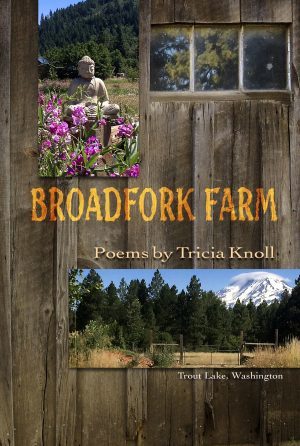
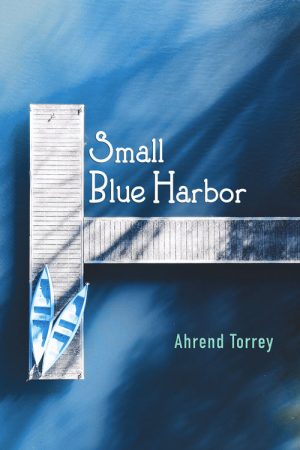
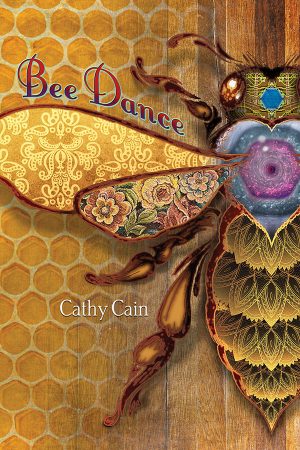
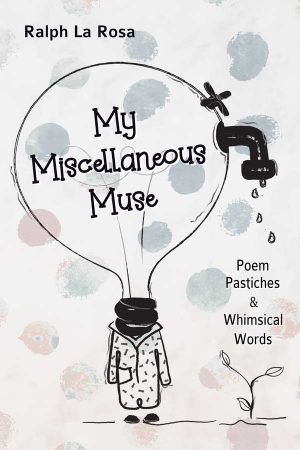
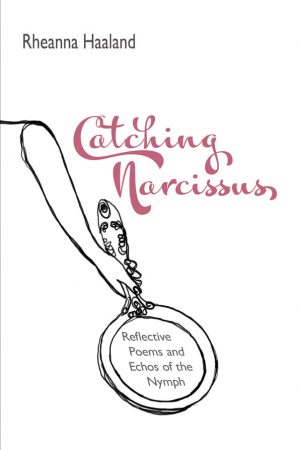
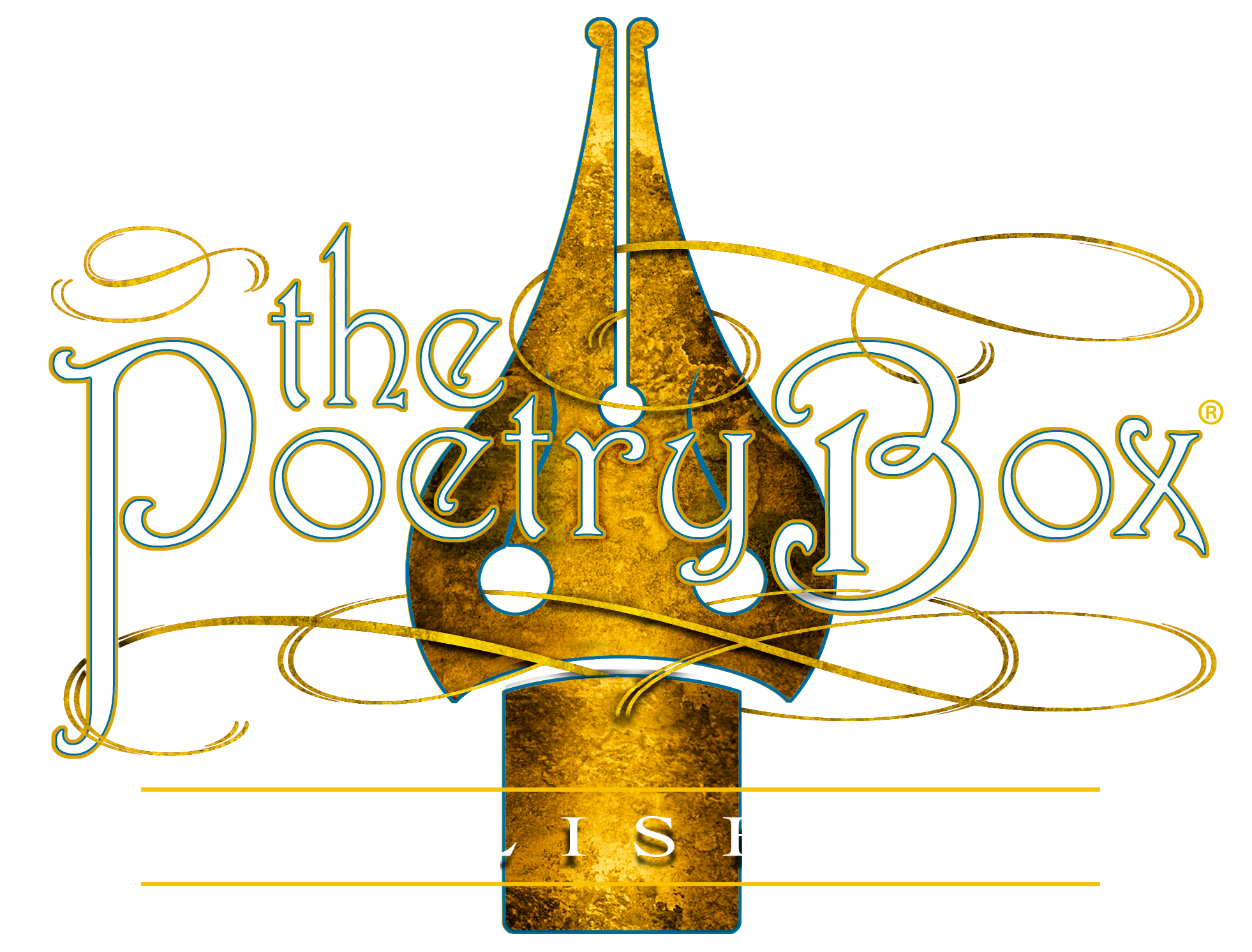
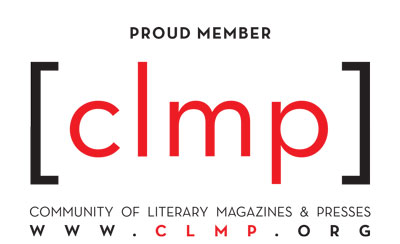

Sandra Knauf –
The first story I read was “Gloucestershire Old Spots” a piece about schoolchildren visiting the pigs and other animals on the farm. That story is a microcosm of life on Broadfork Farm, which has the humble goal to “feed a few and teach caring.” That caring, along with the sharing, the interconnectedness, and the realities of the bitter and the sweet are examined and celebrated in Knoll’s book. In it, you’ll find a world that is mostly breathtakingly beautiful, but where the ugly isn’t sugarcoated; murderous animals, for example, exist on the farm and in the wilderness surrounding it, as do reminders of the problems of the world outside, where atrocities like terrorism, hate crime, and exploitation of humans and land, sometime take center stage. Tricia shows us how all relate, all are interconnected.
One of the things I relish in Knoll’s work is that she paints with all the emotions. The delightful intermingles with the dark, and even the banal is important enough (because it too, is part of life) to be noted. One poem, “Motha of the Bride” brought tears to my eyes, and I laughed out loud at a stanza in “Farmku”, a poem that shares over a dozen unique moments of farm-life, haiku style.
the scarecrow
drops her bra
in the forget-me-nots
(Gosh, I love that.)
While there are many things to admire about Tricia Knoll’s work, perhaps her greatest quality is that she is an eco-poet who doesn’t overwhelm you with that message. The elegant pictures she paints with her poetry, her many astute, and sometimes wry observations of nature simply show you what she loves about this world. And through her art, you love it too.